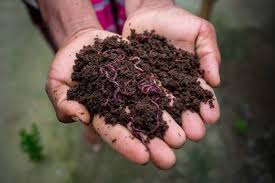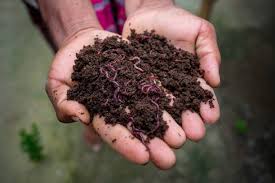Composting Solutions for Housing Societies in Mumbai | Complete 2025 Guide
Composting Solutions for Housing Societies in Mumbai – Complete 2025 Guide
With rising waste generation, limited landfill capacity, and strict BMC regulations, housing societies are under increasing pressure to manage wet waste on-site. Choosing the right Composting Solutions for Housing Societies in Mumbai is no longer optional—it is essential for compliance, cost savings, and sustainable living.
This in-depth guide by Green Planet Solutions Pune explains the most practical, legally compliant, and cost-effective composting options designed specifically for Mumbai’s residential societies.
Why Composting Solutions for Housing Societies in Mumbai Are Mandatory
Mumbai generates thousands of tons of wet waste daily. To reduce landfill dependency, the BMC has made on-site composting compulsory for bulk waste generators, including large housing societies.
- Strict BMC compliance and penalties
- High wet waste generation per society
- Limited waste collection support
- Rising hygiene and odor complaints
Implementing the right Composting Solutions for Housing Societies in Mumbai ensures smooth operations and long-term savings.
Target Audience & Intent
- 🏘️ Housing societies with 50+ flats
- 🏢 Residential townships & gated communities
- 👥 Society managing committees
- ♻️ Sustainability-focused residents
The intent is clear: avoid penalties, reduce costs, and adopt a sustainable waste system.
Key Problems Solved by Composting Solutions for Housing Societies in Mumbai
- Daily wet waste collection dependency
- Foul odor and pest issues
- Non-compliance with BMC rules
- High waste handling costs
- Lack of space in urban buildings
Best Composting Options for Housing Societies in Mumbai
Not all composting systems work well in high-density residential environments. The most effective solutions include:
- ✔ Fully automatic composting machines
- ✔ Odor-free in-vessel composting systems
- ✔ Low-maintenance organic waste converters
These systems are compact, fast, and ideal for Mumbai’s space and climate constraints.
Why Green Planet Solutions Pune Is Trusted by Housing Societies
At Green Planet Solutions Pune, we design composting systems specifically for Indian housing societies and municipal guidelines.
- 🌱 BMC & CPCB compliant solutions
- 🌱 Odor-free & automated technology
- 🌱 Minimal manpower required
- 🌱 End-to-end installation & AMC support
Learn more about our solutions at www.thegreenplanetsolutions.com
Cost & ROI of Composting Solutions for Housing Societies in Mumbai
The cost depends on daily waste generation, automation level, and space availability.
- Low operating cost
- ROI typically within 12–24 months
- Savings on waste transportation & penalties
♻️ Free Waste Audit for Your Housing Society
Find the right composting solution for your society.
Case Study: Mumbai Housing Society Reduced Wet Waste by 85%
A 180-flat housing society in Mumbai partnered with Green Planet Solutions Pune to install an on-site composting machine.
- 85% reduction in wet waste disposal
- No BMC penalties
- Clean premises and odor-free environment
📊 Get Cost & ROI Details
Know exact pricing based on your society size.
How to Get Society Approval Easily
- Present compliance benefits
- Show cost savings & ROI
- Highlight cleanliness & resident comfort
We assist societies with presentations, demos, and approvals.
📥 Download Free Society Composting Checklist
Everything your managing committee must know.
🚀 Ready to Implement Composting in Your Mumbai Society?
Get site visit, expert guidance & proposal within 24 hours.

Final Thoughts
Adopting the right Composting Solutions for Housing Societies in Mumbai helps societies stay compliant, save money, and contribute to a cleaner city. With proven expertise and reliable systems, Green Planet Solutions Pune is your trusted partner for sustainable residential waste management.





